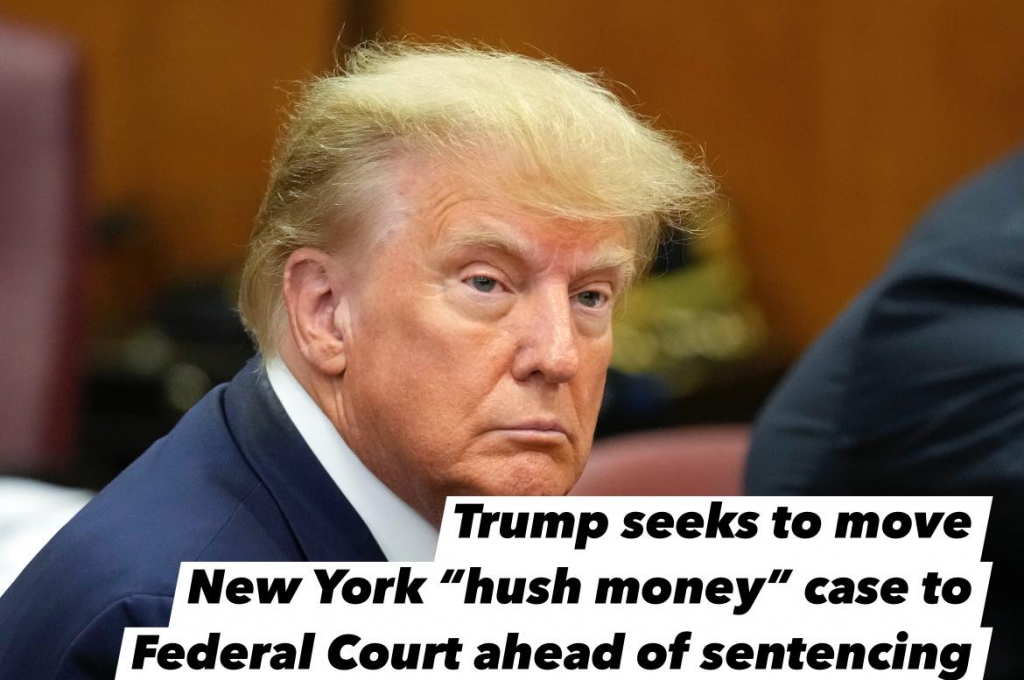Trump’s lawyers argue that the prosecution violated his constitutional rights and the U.S. Supreme Court’s recent presidential immunity ruling. They want the case moved to federal court for an “unbiased forum, free from local hostilities.”
If the case stays in state court, Trump’s lawyers claim it would amount to election interference as his sentencing is scheduled just before Election Day. They also seek to have the verdict overturned and the case dismissed on immunity grounds if it is moved to federal court.
The Manhattan District Attorney’s Office, which prosecuted Trump’s case and fought his previous attempt to move it out of state court, declined to comment. Trump was convicted in May of 34 felony counts related to a $130,000 hush money payment to porn actor Stormy Daniels.
Trump’s former lawyer, Michael Cohen, paid Daniels and was reimbursed by Trump, who maintains that the stories were false and that the reimbursements were for legal work.
Falsifying business records is punishable by up to four years behind bars, but Trump’s lawyers seek to delay his sentencing, citing the Supreme Court’s immunity decision.
They argue that prosecutors rushed to trial instead of waiting for the Supreme Court’s immunity decision and that the prosecution was “tainted” by evidence that should not have been allowed under the ruling.
U.S. District Judge Alvin K. Hellerstein previously rejected Trump’s claim that the hush money case involved official duties, stating it was purely personal.
Trump’s lawyers contend that circumstances have changed since their initial attempt to move the case to federal court. They also argue that state prosecutors misled the court about the trial not involving Trump’s official duties or actions as president.
They also mention Cohen’s testimony about Trump’s potential use of pardon power and his response to investigations into his conduct.
- Follow or share

